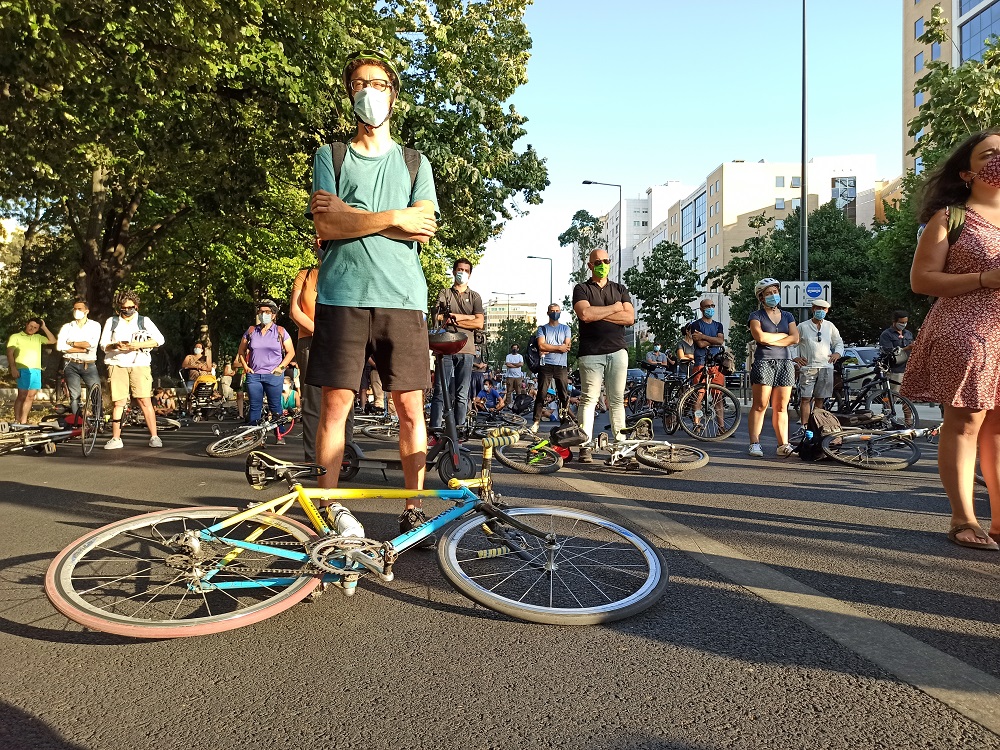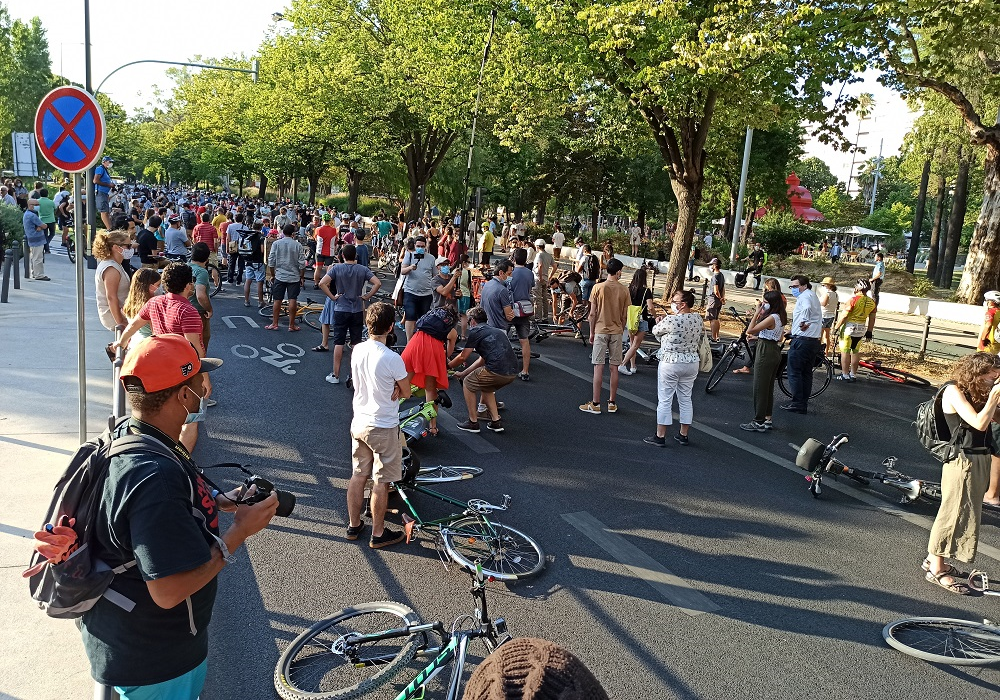
Portugal mobilisations: Road safety cannot be an option anymore
Road crashes are estimated to kill around 1.3 million people every year and are the leading cause of death among children and young people aged between 5 and 29 years, as mentioned in the ECF SCAP (Safe Cycling Advocate program) Best practice Guide. On 9 July 2020, a teenager was killed and run over by a car in Portugal - we cannot wait for the next tragic accident to remind us of the necessity of road safety for all road users. We must act now.
Portugal - 268 cyclists killed by car-traffic over the last decade
On 9 July, in Lisbon, Portugal, Ana, a 16-year-old girl who was crossing the street, walking with her bicycle on a crosswalk, was killed and run over by a car not stopping at a red light. This tragic accident shocked the entire Lisbon cyclist community and throughout the country, leading to an important mobilisation. On 16 July, a national protestation was organised in 9 Portuguese cities: Aveiro, Lisboa, Porto, Braga, Guarda, Santarém, Mértola, Faro and Évora. Hundreds of citizens, including local and national cyclists’ associations and critical mass movements gathered to pay tribute to Ana, laying their bicycle on the ground. More than a homage, it was a protest to denounce the lack of attention paid by authorities when it comes to protecting cyclists and pedestrians.

This topic has been a major part of the Portuguese Federation of Cycletourism and Bicycle Users (FPCUB) work for years, particularly since Portuguese roads and cities are still made for cars and does not adequately consider other users. They believe that the National Road Safety Authority (ANSR) and the highway management organisation (IP) are perpetuating a “car-centric” perspective, being too tolerant when it comes to motorcycles speeding, cars running red lights, illegal parking on sidewalks and cycleways, and other car-driver infractions. In Portugal, 268 cyclists have been killed by car-traffic over the last decade. Cyclist associations call on the government to act by taking clear road safety measures and awareness-raising campaigns, combined with close monitoring of compliance with the Highway Code. In addition, municipalities should invest in safe infrastructure alongside traffic calming measures.
Denmark and The Netherlands – the shift towards cycling improve road safety
 Numbers show that when there is a shift towards cycling in cities on a larger scale, safety trends improve considerably for all modes of transport. The SCAP Guide looks at good practices in European countries, seeking to empower civil society organisations by building their capacity to advocate for safer roads and to promote cycling as a transport mode.
Numbers show that when there is a shift towards cycling in cities on a larger scale, safety trends improve considerably for all modes of transport. The SCAP Guide looks at good practices in European countries, seeking to empower civil society organisations by building their capacity to advocate for safer roads and to promote cycling as a transport mode.
In Copenhagen, infrastructure improvements to encourage cycling directly impacted the decrease of road fatalities. Car driver education is also key. In Denmark, an introduction to all the typical situations demanding special attention to cyclists (characteristics of cyclist behaviour, steering and braking movements, how to perceive possible dangerous situations, etc ) is included in the theoretical and practical education of car drivers. After education comes the reinforcement of penalties for car drivers. In The Netherlands, car-drivers are much more controlled than cyclists. They risk a fine of 95 euros when stopping with their car on parts of the road dedicated to other users, and a lot of various fines as well for speeding and offenses such as red light jumping.
ECF has also been working hard to improve safety for cycling. We were effective in improving the EU Road Infrastructure Safety Management Directive which lays out the requirements of all European TEN-T routes, EU funded roads, and all national primary roads throughout the region. Cycling and walking will have to be considered in all the planning, design, operation, and monitoring of those roads[1]. ECF was also active in lobbying for safer motor vehicle specifications, and late last year the EU concluded a long legislative process with a regulation that will mandate all new vehicles to have Intelligent Speed Assistance, Vehicle Emergency Braking for avoiding crashes with cyclists, Blind Spot Detection systems and Direct Vision standards for trucks, and many others[2].
“Cycling is an incredibly healthy mode of transport; it is also inherently safe. However, there are too many fatalities and serious injuries in Portugal and indeed across the EU. Road fatalities in general have stopped falling across the EU and have plateaued for some years now. Measures to improve cycling and walking will not only help kickstart a fall in fatalities generally but they will also encourage more people to use their bicycles and will improve people’s health and the environment,” stated Ceri Woolsgrove, ECF Policy Officer on Road Safety.
Regions:
Topics:
Contact the author
Recent news!
Upcoming events
Contact Us
Avenue des Arts, 7-8
Postal address: Rue de la Charité, 22
1210 Brussels, Belgium









